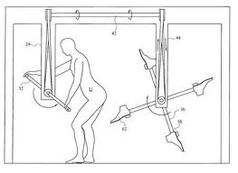|
I recently came across a patent article by Fred Wilson and another by Brad Feld, two respected VCs in the tech community. I found their points resonating with me, even though I've been considering the theory of patents from the entrepreneur's perspective. They were saying that suing over bogus software patents (like Yahoo did) didn't make sense, and I buy that. I can also numerous arguments from the entrepreneur's perspective -- one's that I've directly faced and considered -- that make the current system seem pretty ridiculous. First, the process is overly expensive and quite archaic. The point is to "share knowledge" and publicize inventions so they improve the human condition, but no one sits there reading patents that just got issued, and there's a huge time delay between invention and issue. That time delay causes other problems, including uncertainty and added cost. Also, the people writing and reviewing the applications often don't understand the technology well enough to act right, which causes invalid patents to be issued and fights over validity. And there's the whole problem of patent trolls. The recent reforms requiring first to file cause even more anxiety around the patent decision since you need to decide earlier whether you want to patent or not. This has been the case in Europe forever, where I've heard you pretty much always file provisional patents before you go talk to investors or even create a website. This definitely seems "wasteful" from the "lean" standpoint to me. While I hate the idea of people stealing ideas, I'm a big fan of competition on quality of product and effort; it's really the execution that matters way more than the idea content. What creates tension, though, is that there are areas where patents do more good than harm, such as in biotech. I've been taking a biotech entrepreneurship class for my last quarter, and I heard a researcher tell us how no pharma company would consider licensing or buying their technology or helping them commercialize their invention if they didn't have tight-sealed IP protection. While you can get away with software patents from $10-50K, I've learned that UCLA spends $1M defending patents through to issue for life sciences discoveries, so for UCLA, it's an even more difficult question and much bigger investment. How can these two points be resolved? Do we abolish software patents? Do we have much stricter guidelines on "obviousness" that are spelled out? How do we fix the backlogs in the USPTO and make the process cheaper? Or do we just kill patents altogether and say let the best man/woman/execution win?
2 Comments
6/6/2012 03:14:57 am
Reply
7/15/2013 05:01:15 pm
I have found some contradictory statements regarding patent issues while going through different articles from different authors! But the information provided here are relevant! Thanks for the share! Please provide us with the links of Fred Wilson and Brad Feld’s articles!
Reply
Your comment will be posted after it is approved.
Leave a Reply. |
Archives
June 2024
Categories
All
Subscribe |

 RSS Feed
RSS Feed
